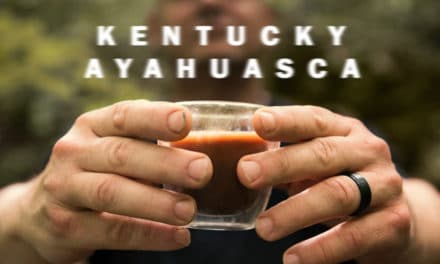
Denver decriminalized use and possession of psilocybin mushrooms this spring, but the city is slowly learning how to implement this reform. Kevin Matthews, Executive Director of the successful Decriminalize Denver campaign, is continuing to help lead this effort in meetings with local officials and community leaders. His goal is to help everyone understand the safety and legality of magic mushroom use under the new context of psilocybin decriminalization.
“We set out from the beginning to establish a good working relationship with the city of Denver,” Matthews said. His organization, now rebranded as SPORE, has already met twice with the Denver District Attorney, City Attorney, and police department.
“The biggest question the DA’s office has is about setting possession limits,” Matthews said. “We specifically did not define limits in our resolution language. We believe the city must not introduce limits, the reason being that no one has the right to determine what is an appropriate amount for someone using mushrooms therapeutically.
“Whether it’s 4 grams, 14 grams, or 140 grams, we don’t want to create any point of entry for law enforcement to enter someone’s property for any amount of psilocybin.”
But this does not give psilocybin users carte blanche to do whatever they want—the psilocybin decriminalization resolution explicitly does not legalize sales and distribution of psilocybin. “If law enforcement comes across some evidence of distribution,” Matthews said, “then they have to use their discretion and address that appropriately. They seem to agree with this reasoning.”
The city leaders acknowledged in these meetings that they don’t know what they’re doing and need more education on the issue. Besides the criminal penalty reforms, Decriminalize Denver also introduced the nation’s first Psilocybin Policy Review Panel, which must be created by December 31, 2019.
In addition to representatives from Denver city council, the panel will include city government officials, law enforcement and courts, medical experts, and community leaders. Matthews stated that the city government is speeding up this process so the panel can quickly meet to address any post-reform concerns.
Even after success at the ballot box, SPORE is sticking to their main message: ensuring safety for psilocybin users. The team meeting with city officials includes a licensed psychotherapist, a PhD psychologist, a harm reduction professional, and a psychedelic integration coach certified by the nation’s leading psychedelic research organization, MAPS. SPORE is also including people who are speaking about their personal therapeutic experiences with psilocybin.
“We’re focusing on ‘Psilocybin 101,’” Matthews said, “which is: how does this affect the body and our physiology, what are its safety mechanisms and risks, and harm reduction techniques and best practices. Besides that, the biggest focus for public outreach is that this is for personal use—no sales, no distribution, and we want to have good information and education readily available.”
In partnership with SPORE, the city is creating public service announcements that will be broadcast on radio, billboards, and television. Matthews’ organization is producing educational Town Halls and other events throughout the city to reach people directly.
He states that about 75% of registered Denver voters either voted against or didn’t vote at all on I-301. That means there are several hundred thousand people in the city who would likely want more information about responsible psilocybin use.
SPORE is targeting its outreach to different groups and professionals like veterans, doctors, nurses, and attorneys. They are also writing a document outlining ‘ethical psilocybin use.’ Resources like these will be publicly accessible to all.
Matthews said that ‘psilocybin facilitators,’ people who provide support or guidance for others during a mushroom trip, are able to continue their work under the new reform as long as they do not encourage buying or selling. “If someone wants to host a community guided session, or facilitate a psilocybin experience, anybody who participates would have to bring their own mushrooms,” he said.
“There was already a culture of use here in Denver. People were already taking these mushrooms to parties and concerts or having guided sessions. Nothing has really changed, just that users no longer have the anxiety of police intervention in their experience.”
There isn’t a sudden influx of people trying psilocybin for the first time, Matthews believes—but more people are learning and talking about it. “The only thing that’s changed since May is there haven’t been any arrests yet in the past two months. And that’s a great sign!”










